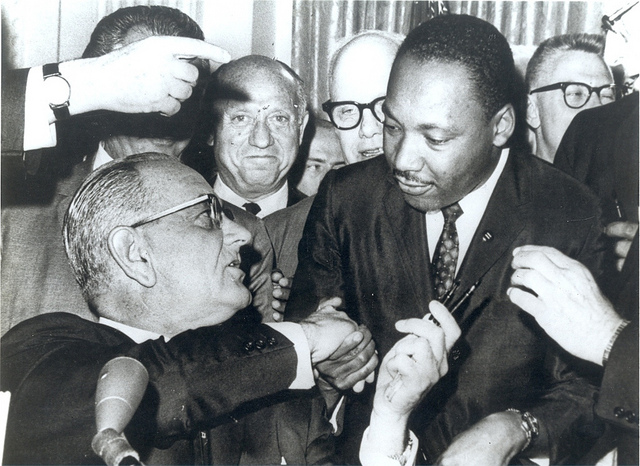
How MLK’s “Letter From A Birmingham Jail” Changed Religion
- By Derek Welch --
- 21 Apr 2018 --

The Essence Of Theological Justification For Civil Disobendiece
Nietzsche once said, “All I need is a sheet of paper and something to write with, and then I can turn the world upside down.” If we were documenting some of the most important words in 20th-century American history Dr. Martin Luther King Jr.’s Letter from a Birmingham Jail would be on the short-list. As we celebrate the 55th year anniversary it is crucial to revisit the document.
How MLK’s Letter From A Birmingham Jail Changed Religion[/tweetthis]
It is eloquently written, with a triumph of language and numerous historical, philosophical, and religious examples. It is considered to be one of the best descriptions of civil disobedience in modern society. The document is one of the reasons that MLK became cemented into our national consciousness, but it also represented both an illustration of the power of applying religious doctrine to modern problems and a shift in how churches should operate in the United States.
Background
The letter was written by King while arrested during his leadership of the Birmingham Boycotts for desegregation. King had previously led the Montgomery Bus Boycotts and needed this win to demonstrate his leadership skills. The letter is not directly addressed to the public. It is directed to the religious community and leaders in Birmingham. King expressed disappointment in how he felt these individuals were violating the essence of what the church represents, “too many others have been more cautious than courageous and have remained silent behind the anesthetizing security of stained glass windows.”
He was also facing criticism from black clergy who called him extreme in his actions. King framed his argument that extremism was what drove change and was written into the works of Jesus and Paul, “Was not Jesus an extremist for love: ‘Love your enemies, bless them that curse you, do good to them that hate you, and pray for them which despitefully use you, and persecute you…’ Was not Paul an extremist for the Christian gospel: ‘I bear in my body the marks of the Lord Jesus.’” Extremism is being defined as following your personal beliefs, even if they run counter to what is acceptable in society.
How does this change the idea of religion in the United States?
It is essential to understand that the history of racial injustice was, in part, solidified by support from religious institutions. Slavery was justified by church officials. Individuals believed that the ethic of “love thy neighbor” did not apply to black people through unique interpretations of the Bible. While there were numerous arguments against slavery and racism through different religious leaders, King focuses on the silence of those who consider themselves moderate to speak out as a challenge to this intersection of religion and violence. Basically, that churches cannot sit on the sidelines anymore.
Perhaps the most famous quote of the letter is “an injustice anywhere is an injustice everywhere.” This is a radical call to action for religious leaders. It tells them that they cannot focus purely on their community or ignore broader social justice issues. The influence can be seen in figures like Pope Francis, who routinely speaks out in the spirit that MLK mentions. While religion is not the entire basis for control for rights, it can provide a powerful organizational tool as well as a spiritual foundation that can give vigorous stamina necessary for grassroots momentum to become sustainable and led to meaningful change.



















